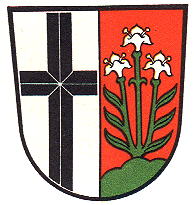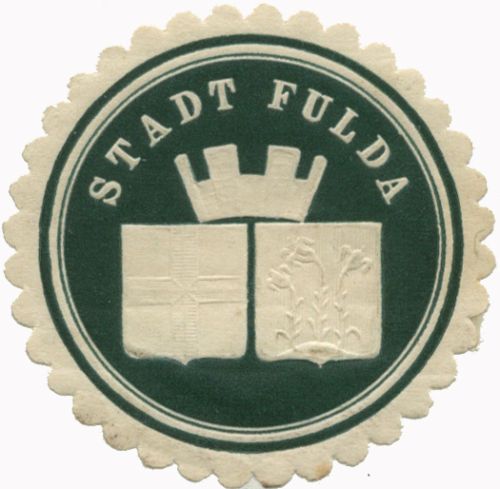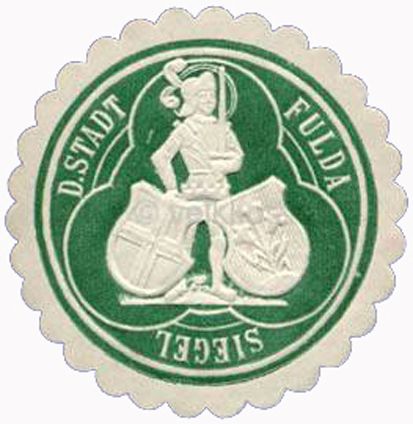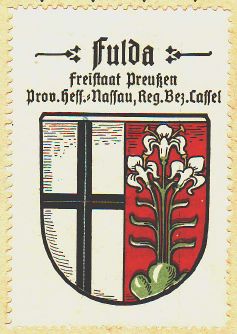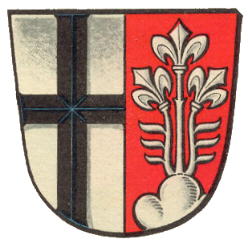Fulda: Difference between revisions
Knorrepoes (talk | contribs) No edit summary |
Knorrepoes (talk | contribs) No edit summary |
||
| Line 24: | Line 24: | ||
{|align="center" | {|align="center" | ||
|align="center"|[[File:fuldaz1.jpg|center]] <br/> | |align="center"|[[File:fuldaz1.jpg|center]] <br/>Seals of the city from around 1900. | ||
|align="center"|[[File:fuldaz2.jpg|center]] <br/> | |align="center"|[[File:fuldaz2.jpg|center]] <br/> | ||
|- | |- | ||
Revision as of 11:05, 13 November 2011
| Heraldry of the World Civic heraldry of Germany - Deutsche Wappen (Gemeindewappen/Kreiswappen) |
FULDA
State : Hessen
District (Kreis) : Fulda
Additions : 1971/2 Bernhards, Besges, Bronnzell, Dietershan, Edelzell, Gläserzell, Haimbach, Hamerz, Istergiesel, Johannesberg, Kämmerzell, Kohlhaus, Lehnerz, Lüdermünd, Maberzell, Malkes, Mittelrode, Niederrode, Niesig, Oberrode, Rodges, Sickels, Zell, Zirkenbach
Official blason:
Ein gespaltener Schild; vorne in Silber ein schwarzes, durchgehendes Kreuz, hinten in Rot ein grüner Dreiberg, aus dem eine grüne Lilienstaude mit drei silbernen Blüten herauswächst.
Origin/meaning :
The arms are a combination of the cross of the Fulda Abbey and the symbol of the patron saint of the Abbey and city, St. Simplicius. The oldest known seal of the city, which dates from the late 13th century, shows an Abbott on a throne with at his feet a shield with the three lilies rising from a hill. A later seal shows only the patron saint, and in the 17th century he was shown holding a banner with a cross. The above arms were adopted in the 19th century and combine the cross and the lilies.
The combination of both first appears on a banner of the Abbey in 1300, but was never used before as arms of either the Abbey or the city.
Still, the city sometimes used two separate shields, one with the cross, the other with the lily.
| Seals of the city from around 1900. |
|
| The arms in the Kaffee Hag albums +/- 1925 |
The arms as shown in the 1950s. |
Literature : Stadler, K. : Deutsche Wappen - Bundesrepublik Deutschland. Angelsachsen Verlag, 1964-1971, 8 volumes.

